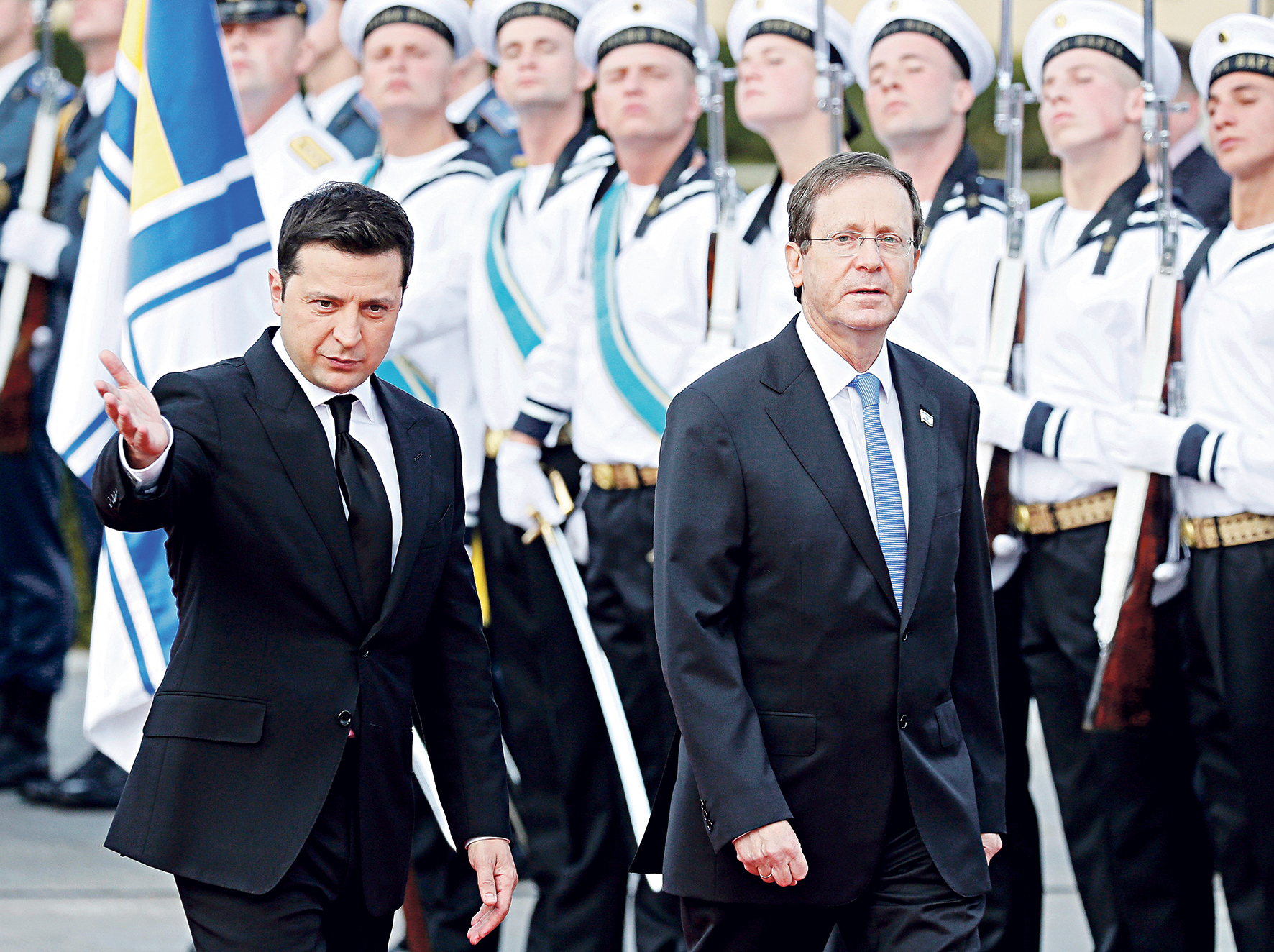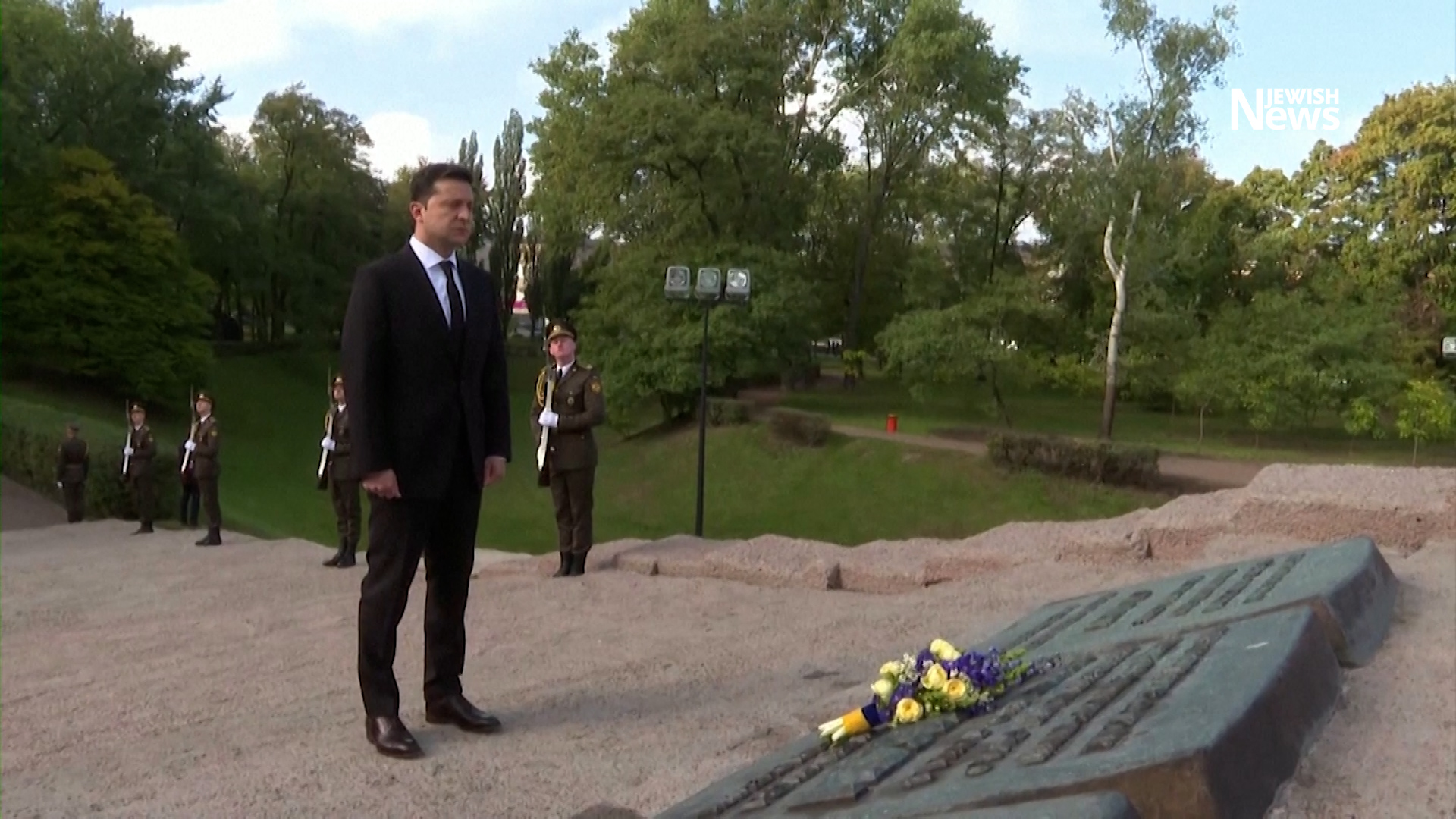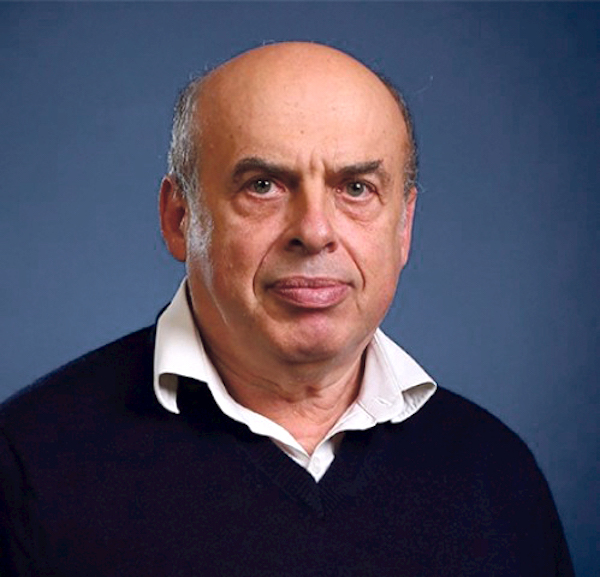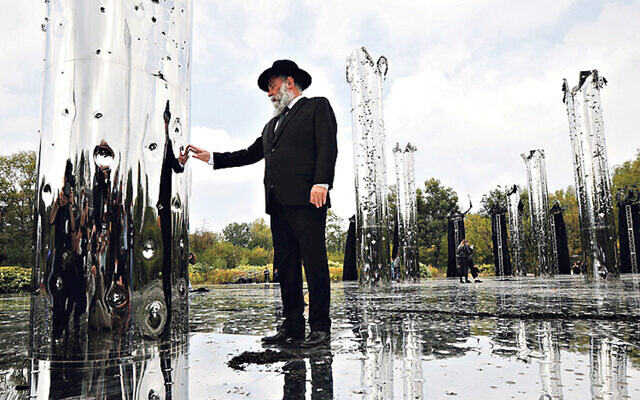Babyn Yar 80th anniversary: ‘New memorial is a place of peace’
With presidential backing, Ukraine has held two weeks of events including exhibitions, an academic conference and documentary film premieres to mark the massacre
Events and teaching dedicated to the Babyn Yar massacre of 33,771 Jews near Kyiv have taken place across Ukraine, as world leaders flew in to remember the victims on its 80th anniversary.
Babyn Yar, as it is now known, is a ravine just outside the capital where, in less than 48 hours at the end of September 1941, many of the city’s Jews were lined up and shot by Nazi soldiers, roughly eight every minute. They had been told that they were being relocated.
Families were ordered through the city to the edge of the ravine and shot in the head, causing them to fall on to the bodies of those who had been shot moments earlier.
Men, women, and children were all killed in what is now thought to be the largest single massacre in the history of the Holocaust.
In the following months, other minorities such as Roma were killed there as well, almost 200,000 in all.
With presidential backing, Ukraine has held two weeks of events including exhibitions, book presentations, poem readings, an international academic conference and documentary film premieres.
Hundreds marched the route taken by the victims, while in classrooms throughout the country last week there was a special one-day lesson on the massacre.
Education is seen as key, say Jewish leaders, because according to the latest research, almost half of all Ukrainians do not know where Babyn Yar is.

“What should have become a place of memory has become a place of oblivion,” said a spokesman for the new £75million Babyn Yar Holocaust Memorial Centre (BYHMC), which is being built on the site, alongside
a synagogue.
Ukrainian president Volodymyr Zelensky said: “As Europe’s largest mass grave, Babyn Yar represents unimaginable destruction.” He added that the new centre “will become
a place of peace, reflection and tranquillity”.
A memorial art installation called Crystal Wall of Crying, by conceptual and performance artist Marina Abramović, was presented to mark the 80-year anniversary, while a new documentary film, Babyn Yar. Context, by Ukrainian director Serhiy Loznytsia, had its premiere. The film was given the prestigious Golden Eye award at the Cannes film festival this summer.
The presidents of Germany, Israel and Albania attended a ceremony with Zelensky, while across the city exhibitions opened, including one called Exclusion Zone by Jonathan Littell and Antoine d’Agata, which was displayed not in a museum but in one of Kyiv’s busy underground Metro stations.
“We are building a memorial, which we hope will become a part of the world’s cultural heritage,” said BYHMC chief executive Max Yakover. “The most important thing is that we bring back the memory of this place, the memory of the victims.”

Among the more important initiatives was the National Memory Lesson, with a 120-page teaching resource, which was made available last week, together with an interactive platform, although educators say they hope that schoolchildren will visit in person.
Ukrainian-born Natan Sharansky, the former chairman of the Jewish Agency who now chairs the BYHMC, said Babyn Yar was “a place that was whispered among Jews” in the 1950s and 1960s, during the height of the Soviet regime.

Mark Green, a retired US ambassador who now heads the Woodrow Wilson International Centre for Scholars, described Babyn Yar as “a stepping stone on the way to genocide”, but said it “also stands as a symbol of erasure, of forgetting what happened, when history is made to serve political agendas”.
A BYHMC spokesman said the centre was “in the process of becoming one of the world’s largest Holocaust complexes” and had “already uncovered numerous new details, such as the names of many of the victims, the Nazi units involved, and how both the Germans and the Soviet Union tried to cover it up over the years”.

Thank you for helping to make Jewish News the leading source of news and opinion for the UK Jewish community. Today we're asking for your invaluable help to continue putting our community first in everything we do.
For as little as £5 a month you can help sustain the vital work we do in celebrating and standing up for Jewish life in Britain.
Jewish News holds our community together and keeps us connected. Like a synagogue, it’s where people turn to feel part of something bigger. It also proudly shows the rest of Britain the vibrancy and rich culture of modern Jewish life.
You can make a quick and easy one-off or monthly contribution of £5, £10, £20 or any other sum you’re comfortable with.
100% of your donation will help us continue celebrating our community, in all its dynamic diversity...
Engaging
Being a community platform means so much more than producing a newspaper and website. One of our proudest roles is media partnering with our invaluable charities to amplify the outstanding work they do to help us all.
Celebrating
There’s no shortage of oys in the world but Jewish News takes every opportunity to celebrate the joys too, through projects like Night of Heroes, 40 Under 40 and other compelling countdowns that make the community kvell with pride.
Pioneering
In the first collaboration between media outlets from different faiths, Jewish News worked with British Muslim TV and Church Times to produce a list of young activists leading the way on interfaith understanding.
Campaigning
Royal Mail issued a stamp honouring Holocaust hero Sir Nicholas Winton after a Jewish News campaign attracted more than 100,000 backers. Jewish Newsalso produces special editions of the paper highlighting pressing issues including mental health and Holocaust remembrance.
Easy access
In an age when news is readily accessible, Jewish News provides high-quality content free online and offline, removing any financial barriers to connecting people.
Voice of our community to wider society
The Jewish News team regularly appears on TV, radio and on the pages of the national press to comment on stories about the Jewish community. Easy access to the paper on the streets of London also means Jewish News provides an invaluable window into the community for the country at large.
We hope you agree all this is worth preserving.






















